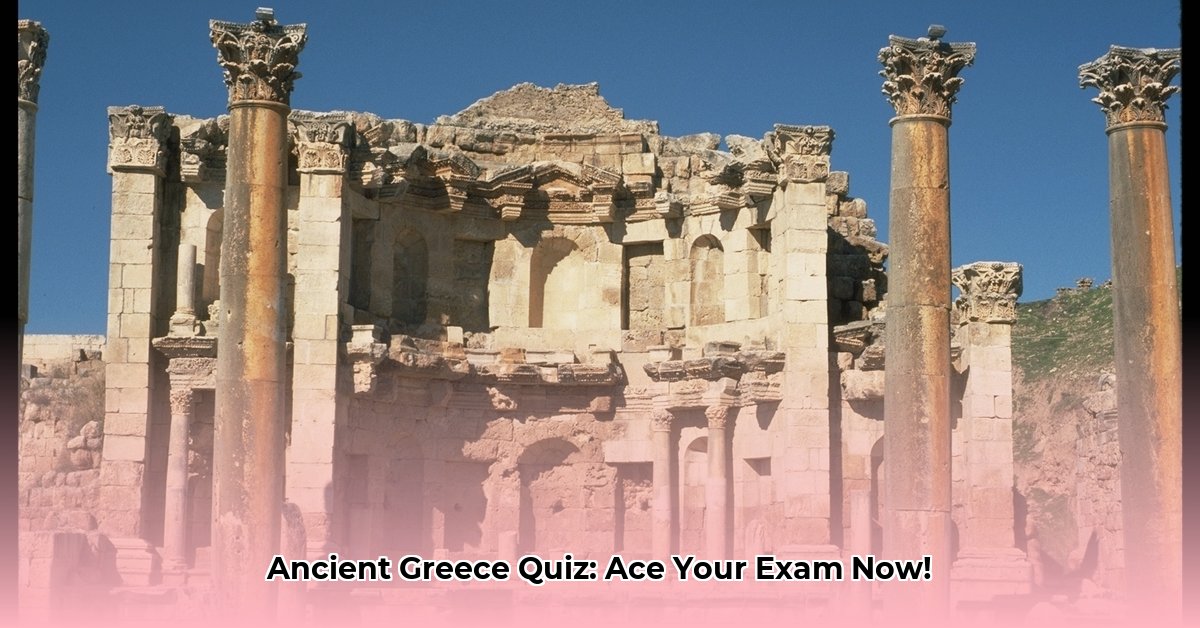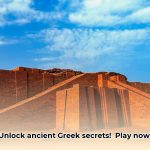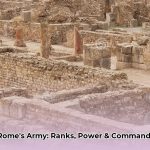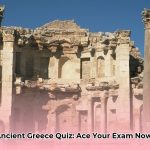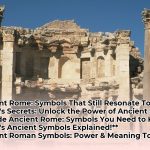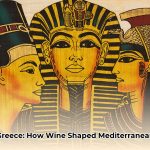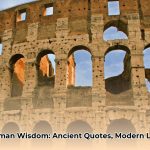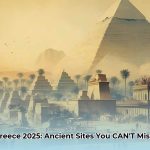Ever wondered if you truly grasp the grandeur of Ancient Greece beyond the myths? It’s more than just gods and heroes; it’s the bedrock of Western civilization. Forget rote memorization. This guide isn’t just a quiz; it’s a comprehensive journey designed to solidify your understanding of this pivotal era, equipping you to ace any exam or challenge your knowledge of Ancient Greece.
We’ll delve into its essential contributions, explore game-changing conflicts, tackle common misconceptions, and provide insights that will elevate your mastery. Get ready to conquer Ancient Greece and deepen your appreciation for its enduring legacy.
Unlocking Ancient Greece: Foundations and Philosophies
Ancient Greece was a mosaic of independent city-states, or poleis, each with its unique character, yet bound by a shared language, culture, and religious beliefs. Understanding the distinct identities of these city-states and the intellectual giants they produced is fundamental to grasping this complex civilization.
The Rise of the Polis: Athens vs. Sparta
The polis was the fundamental political and social unit, often built around a fortified acropolis. Among these, Athens and Sparta emerged as the most influential, embodying contrasting ideals that shaped not only their own societies but also the future of governance.
Athens, often lauded as the “birthplace of democracy,” pioneered a radical system where citizen participation in governance was paramount. Reforms initiated by figures like Cleisthenes around 508 BCE laid the groundwork for the Ecclesia, or Assembly, where all eligible male citizens could directly debate and vote on laws and policies. This innovative approach to self-governance, though not inclusive by modern standards, marked a significant departure from earlier aristocratic rule. It fostered a vibrant intellectual and artistic culture that prioritized public discourse and civic engagement.
In stark contrast, Sparta was a militaristic society, renowned for its discipline and formidable warriors. From the age of seven, Spartan boys entered the Agoge, a rigorous state-sponsored training system designed to produce elite soldiers. Their society was rigidly structured, prioritizing collective strength and martial prowess over individual expression or artistic pursuits. This focus ensured military supremacy but also led to a more insular and conservative culture.
Consider this insight: What was the primary difference in governance between Athens and Sparta? While Athens developed a direct democracy emphasizing citizen assembly, Sparta was an oligarchy, ruled by a small group of aristocratic elders and two kings, focusing on military readiness and social stability.
Giants of Thought: Shaping Western Philosophy
Ancient Greece produced a constellation of philosophers whose ideas continue to resonate today.
- Socrates (c. 470–399 BCE): Known for the Socratic method of question-and-answer to stimulate critical thinking. Though he wrote nothing, his ideas were preserved by his students. He was infamously sentenced to death by hemlock for “corrupting the youth of Athens,” as depicted in Plato’s Apology.
- Plato (c. 428–348 BCE): A student of Socrates, Plato founded the Academy in Athens, one of the earliest institutions of higher learning in the Western world. His writings, often in dialogue form (like The Republic), explored justice, beauty, equality, and introduced the theory of Forms.
- Aristotle (384–322 BCE): A student of Plato, Aristotle’s intellectual scope was encyclopedic, covering logic, metaphysics, ethics, politics, biology, and poetics. He tutored Alexander the Great, profoundly influencing the young monarch’s approach to governance and culture.
Reflect on this: Which Greek philosopher served as the esteemed tutor to Alexander the Great? It was Aristotle, whose comprehensive teachings encompassed a vast array of subjects, significantly shaping Alexander’s intellectual development and worldview.
Epic Conflicts: Battles That Forged an Empire
Ancient Greece was not a land of perpetual peace; it was forged in the crucible of conflict. The major wars not only decided the fate of city-states but also profoundly influenced the trajectory of Western civilization.
The Greco-Persian Wars (499–449 BCE): The Clash of East and West
These were a series of conflicts between the expanding Achaemenid Persian Empire and the independent Greek city-states.
- The Battle of Marathon (490 BCE): A landmark victory for the outnumbered Athenians, demonstrating that a well-disciplined Greek hoplite army could repel the might of the Persian Empire. This victory boosted Athenian confidence and set the stage for future resistance.
- The Battle of Thermopylae (480 BCE): Though a tactical defeat, this battle became a legendary symbol of heroic sacrifice. King Leonidas I of Sparta and his 300 Spartans, alongside other Greek allies, held a narrow pass against the vast Persian army of Xerxes I, buying crucial time for other Greek forces to organize.
- The Battle of Salamis (480 BCE): A decisive naval victory for the Greek alliance, led primarily by Athens. The smaller, more agile Greek fleet outmaneuvered and destroyed a significant portion of the Persian navy in the narrow straits, turning the tide of the war.
- The Battle of Plataea (479 BCE): The final major land battle, where a unified Greek army conclusively defeated the remaining Persian forces, ending the Persian invasions of Greece.
Consider this historical question: What was the outcome of the Battle of Marathon, and which side achieved victory? The Battle of Marathon resulted in a crucial victory for the Athenian forces, demonstrating the formidable effectiveness of Greek hoplites against the larger Persian army.
The Peloponnesian War (431–404 BCE): A House Divided
This devastating civil conflict pitted the Athenian-led Delian League against the Spartan-led Peloponnesian League. It was a protracted struggle that showcased the strengths and weaknesses of both sides and ultimately reshaped the Greek world.
The war’s causes were complex, stemming from growing Athenian power and imperialism, which threatened Sparta’s traditional dominance and the independence of other city-states. Athens, with its strong navy and wealth, initially held an advantage, but Sparta’s superior land army and the devastating plague that struck Athens eventually turned the tide. The war concluded with Sparta’s victory, largely due to Persian financial support that allowed Sparta to build a competitive fleet, and the decisive Spartan naval victory at Aegospotami.
Reflect on this pivotal conflict: Which two dominant city-states were the primary adversaries in the Peloponnesian War? The Peloponnesian War was a brutal struggle primarily between the naval power of Athens and the land-based military might of Sparta.
The Fabric of Greek Life and Culture
Beyond politics and war, Ancient Greece flourished in arts, sports, and spiritual practices, leaving an indelible mark on human civilization.
Art and Architecture: Enduring Beauty
Greek art and architecture are characterized by their emphasis on balance, harmony, and idealized forms. The Parthenon, a former temple dedicated to the goddess Athena on the Athenian Acropolis, stands as the quintessential example of Doric order architecture, celebrated for its perfect proportions and intricate sculptural decorations by Phidias.
Greek column orders—Doric, Ionic, and Corinthian—showcased evolving aesthetic preferences. The Doric was robust and simple, the Ionic introduced volutes (scrolls) on its capital, and the Corinthian, the most ornate, featured elaborate acanthus leaves.
The Ancient Olympic Games: A Celebration of Excellence
Originating in Olympia in 776 BCE, the ancient Olympic Games were more than sporting events; they were a religious festival honoring Zeus, the king of the gods. Athletes from various city-states competed every four years in events like running, wrestling, chariot racing, and discus throwing. These games embodied the Greek ideals of physical and mental excellence, fostering a sense of pan-Hellenic identity.
Consider: In whose honor were the ancient Olympic Games originally held? The ancient Olympic Games were inaugurated as a grand religious festival dedicated to Zeus, the supreme deity of the Greek pantheon.
Mythology and Religion: Stories That Shaped a Worldview
Greek mythology is a rich tapestry of gods, goddesses, heroes, and fantastic creatures, deeply interwoven with daily life and religious practices. The Olympian gods, led by Zeus, personified natural forces and human qualities. Myths often served to explain the world, moral lessons, and historical events.
Religious rites, such as the Eleusinian Mysteries held in honor of Demeter and Persephone, were secretive initiation ceremonies promising initiates rewards in the afterlife. Oracles, like the one at Dodona (dedicated to Zeus) or the more famous Oracle of Delphi (dedicated to Apollo), were consulted for divine guidance and prophecies.
Daily Life and Society: A Glimpse into Antiquity
While often overshadowed by philosophical debates and epic battles, the daily lives of ancient Greeks varied greatly depending on their city-state and social status. Women, for example, had different roles and rights in Athens (where they were largely confined to the home) compared to Sparta (where they enjoyed more freedom and physical training). Education varied too; in Athens, it focused on rhetoric, philosophy, and the arts for boys, while in Sparta, military training dominated.
The Fading Light: Decline and Enduring Legacy
The decline of Ancient Greece was not a sudden collapse but a gradual process influenced by a complex interplay of internal strife and external pressures.
Internal Strife: The Cost of Disunity
The continuous rivalries and conflicts among the city-states, particularly the devastating Peloponnesian War, significantly weakened Greece. These incessant internal struggles depleted resources, manpower, and political will, leaving the poleis vulnerable and unable to form a unified front against emerging powers. The failure to forge a strong, unified political entity ultimately undermined their independence.
The Macedonian Ascendancy and Hellenistic Era
As the Greek city-states exhausted themselves, a new power rose to prominence in the north: Macedon. Under King Philip II, and later his son Alexander the Great, Macedon unified Greece (often by force) and then embarked on unprecedented conquests. Alexander’s empire stretched from Greece to India, spreading Greek culture, language, and ideas across vast territories—a process known as Hellenization.
However, Alexander’s sudden death in 323 BCE left a massive power vacuum. His vast empire fragmented into several Hellenistic kingdoms ruled by his generals (the Diadochi), such as the Ptolemaic dynasty in Egypt and the Seleucid Empire in Asia. While these kingdoms preserved and propagated Greek culture, Greece itself became a collection of smaller, less significant powers, often subjects of larger Hellenistic struggles.
Consider this: After Alexander the Great’s death, his vast empire was divided among his generals. Which general founded the Ptolemaic dynasty in Egypt? It was Ptolemy I Soter, who took control of Egypt and established a dynasty that would rule for nearly three centuries, making Alexandria a preeminent center of Hellenistic culture and learning.
The Roman Juggernaut: A New Era
The ultimate conquest of Greece came from the burgeoning Roman Republic. The Romans gradually asserted their dominance in the Eastern Mediterranean, engaging in various conflicts with the Hellenistic kingdoms and the remaining Greek city-states. By 146 BCE, with the destruction of Corinth, Greece formally became a Roman province.
While Rome conquered Greece militarily, Greek culture profoundly influenced Roman art, literature, philosophy, and religion. Roman elites often sent their sons to study in Greek schools, and many Greek scholars and artists found patronage in Rome. In essence, while Greek political independence ended, its cultural legacy lived on, deeply embedded within the Roman Empire and subsequently shaping Western civilization for millennia.
Reflect on the final political chapter: What rising power eventually absorbed Ancient Greece into its vast empire, ending its era of independent city-states? The formidable Roman Republic systematically conquered the Greek territories, integrating them into its expanding empire by 146 BCE.
The Enduring Legacy
The “fall” of Ancient Greece was not a disappearance but a transformation. Its contributions—democracy, philosophy, drama, history, mathematics, science, architecture, and art—formed the bedrock of Western thought and institutions. From legislative principles to literary forms, from architectural columns to the very concept of rational inquiry, the echoes of Ancient Greece are ubiquitous.
This rich Greek civilization continues to inspire and inform our understanding of human potential and societal organization. By exploring its history, you gain insights not just into the past, but into the foundations of the present.
Maximize Your Knowledge: Mastering Key Facts for Any Quiz
To truly master any Ancient Greece quiz or exam, focus on connecting key figures, events, and concepts with their broader significance. Here’s a quick guide to cementing your understanding:
- Identify Core Themes: Think about the big ideas: democracy, military power, philosophical inquiry, artistic expression, and empire-building.
- Connect the Dots: Don’t just memorize isolated facts. Understand how the Peloponnesian War weakened the city-states, paving the way for Macedonian dominance. See how Aristotle’s teachings influenced Alexander’s vast empire-building.
- Visualize Geography: Understand the role of the Aegean Sea, the location of major city-states like Athens and Sparta, and the extent of Alexander’s conquests. An interactive map can be invaluable here.
- Explore Primary Sources: Reading snippets from Herodotus or Thucydides provides direct insight into ancient perspectives, enriching your understanding beyond textbook summaries.
- Test Yourself Actively: Use the questions embedded throughout this guide, or seek out advanced quizzes, not as a final assessment, but as a tool for active recall and to identify areas for further study. The process of answering and immediately reinforcing that knowledge with correct, detailed information is key to long-term retention.
This guide provides a robust framework. Continue to challenge yourself by reflecting on critical questions: How did the geographic fragmentation of Greece contribute to the rise of independent city-states? What ethical dilemmas did philosophers like Socrates address? How do the stories of Greek mythology reflect the values and fears of ancient society? The more you dig, the more fascinating this ancient world becomes. Begin your deeper exploration now!
- Unearth ancient rome achievements: Engineering feats & legal legacies, examined - August 13, 2025
- Unlock ancient rome army ranks: Power, impact & legion command - August 13, 2025
- Conquer Your Exam: Ancient Greece Quiz Ace It Now! - August 13, 2025
